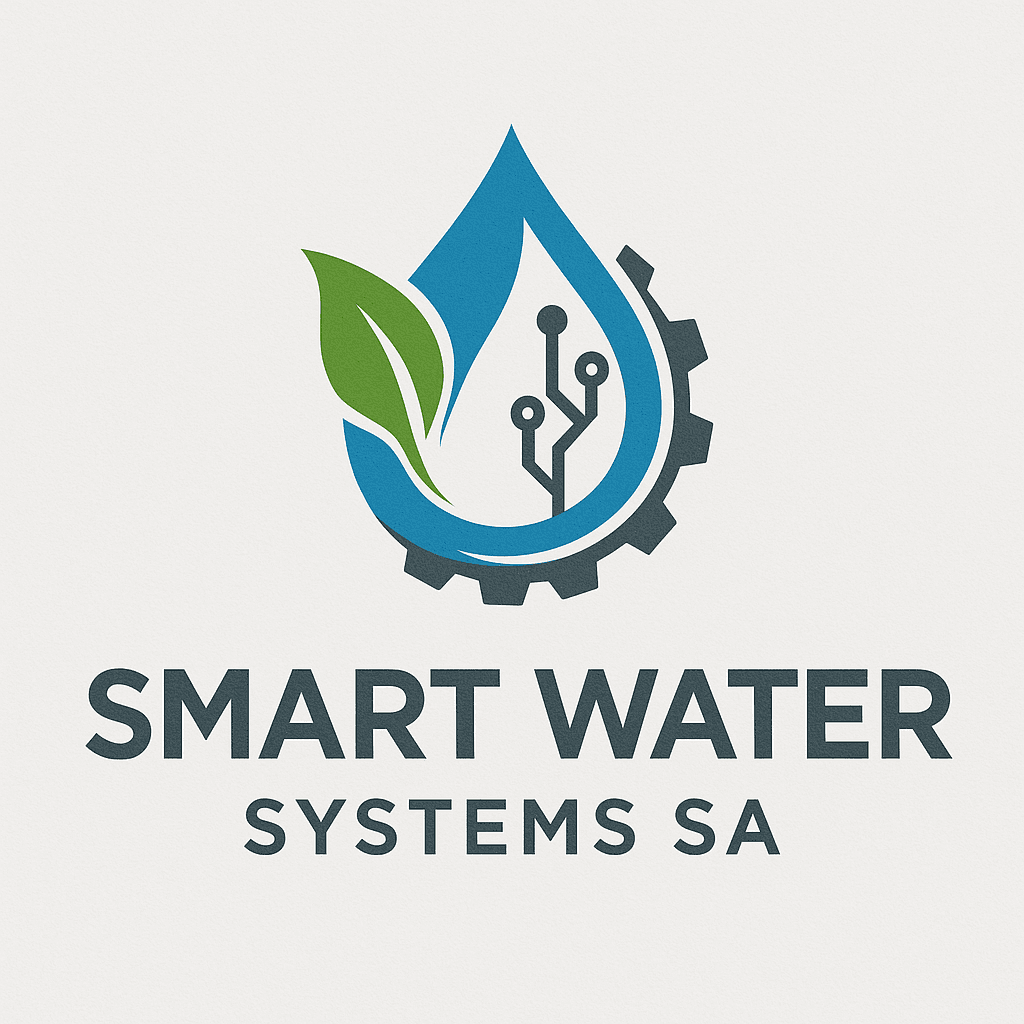Smart strategies to thrive through droughts, restrictions, and rising costs
🌿 Introduction
Farming in South Africa — especially in the Garden Route, Overberg, and Cape Winelands — is getting tougher every year due to droughts, unpredictable rainfall, and municipal water restrictions. With water becoming an increasingly scarce resource, smart water management is no longer optional — it’s essential.
At Smart Water Systems SA, we work with farmers daily to design and implement efficient, automated water solutions. In this post, we’ll share the Top 5 Water-Saving Tips for Farmers in 2025 — practical, proven strategies that help save water without sacrificing yield.
Whether you’re growing fruit, vegetables, or livestock, these tips can make your farm more resilient, profitable, and eco-friendly.
💧 1. Switch to Smart Irrigation Systems
Old irrigation = wasted water.
Sprinklers left on too long, leaking pipes, and manual errors are common causes of water loss.
Solution: Install a smart irrigation controller that uses:
- Soil moisture sensors
- Weather forecasts
- Time-based scheduling
Smart systems adjust automatically — watering only when and where it’s needed.
Example: A vineyard in Stellenbosch cut its water use by 35% after switching to a soil moisture-controlled drip system.
Pro Tip: Combine smart irrigation with remote monitoring via your smartphone. You’ll know exactly what’s happening, even when you’re not on-site.
Keywords: smart irrigation system South Africa, automated irrigation for farms, moisture sensors Western Cape
🌧️ 2. Harvest Every Drop of Rainwater
Don’t let free water go to waste.
Rainwater harvesting is one of the most cost-effective ways to boost water security.
What to install:
- Gutter systems on barns, sheds, greenhouses
- First-flush diverters to keep debris out
- Large storage tanks connected to filters or pumps
Why it matters: Even 10mm of rain on a 100m² roof gives you 1,000 litres of clean water. That’s enough to irrigate a small field or supply livestock for a week.
Tip: Install tank level sensors to monitor usage and refill needs in real-time.
Keywords: rainwater harvesting systems Garden Route, farm water tanks Overberg, drought-proof farming Western Cape
💦 3. Use Drip Irrigation – Not Overhead Sprinklers
Overhead irrigation is easy — but it’s also wasteful.
Problems with sprinklers:
- Evaporation in the summer heat
- Uneven coverage
- Water on leaves = disease risk
Solution: Drip irrigation delivers water directly to the root zone, minimizing evaporation and runoff.
Benefits:
- 30–50% less water usage
- Better plant health and yield
- Reduced weed growth between rows
Ideal for: Fruit orchards, vineyards, vegetable beds, and tunnels
Tip: Add fertigation to your drip system — it saves even more water by reducing spray applications.
Keywords: drip irrigation system Cape Winelands, water-efficient farming techniques SA, irrigation design Western Cape
📊 4. Monitor Your Water in Real-Time
You can’t manage what you don’t measure.
Smart farmers track their water usage daily — not just monthly.
Tools to use:
- Flow meters on boreholes and pumps
- Tank level sensors with mobile alerts
- Online dashboards for daily tracking
Why it works: Early alerts help you detect:
- Leaks in pipes or tanks
- Malfunctioning irrigation valves
- Unusual consumption during dry weeks
Smart Tip: Some systems even allow remote shutoff or scheduling adjustments — ideal for off-site farm management.
Keywords: farm water monitoring system SA, borehole level sensor Garden Route, agriculture water meters Western Cape
🚜 5. Recycle and Reuse Where You Can
Every drop counts — especially in high-demand zones.
Greywater recycling and runoff capture systems can give you second-use water for:
- Washing down equipment
- Tree irrigation
- Dust suppression on farm roads
Case Study: A farm in Swellendam filters and reuses water from its packhouse washroom to irrigate olive trees — saving over 12,000L monthly.
How to start:
- Separate waste water from chemicals and detergents
- Use gravel/sand filters or biological treatment
- Create holding tanks for reuse
Keywords: greywater for farms South Africa, water recycling on farms, reuse irrigation water Overberg
✅ Bonus Tips
- Mulch, mulch, mulch! Retains soil moisture naturally.
- Plant drought-resistant crops during dry seasons.
- Fix leaks fast — even small ones can waste thousands of litres.
- Educate workers on correct watering methods.
- Audit your system yearly for hidden inefficiencies.
🌱 Conclusion: Future-Proof Your Farm Today
Saving water in 2025 is about more than just compliance — it’s about resilience, efficiency, and sustainability.
At Smart Water Systems SA, we help farmers across the Garden Route, Overberg, and Cape Winelands turn these tips into real systems that work — whether that means installing a smart pump, designing your drip layout, or automating your irrigation with weather-based sensors.
📞 Want to Save Water and Boost Yield?
Let us assess your water setup and recommend the most effective upgrades.
👉 Book Your Free Water Assessment Today
🔍 Related Searches
- smart irrigation Western Cape
- farm water management SA
- borehole automation Cape Town
- rainwater tanks for agriculture
- sustainable farming techniques South Africa
